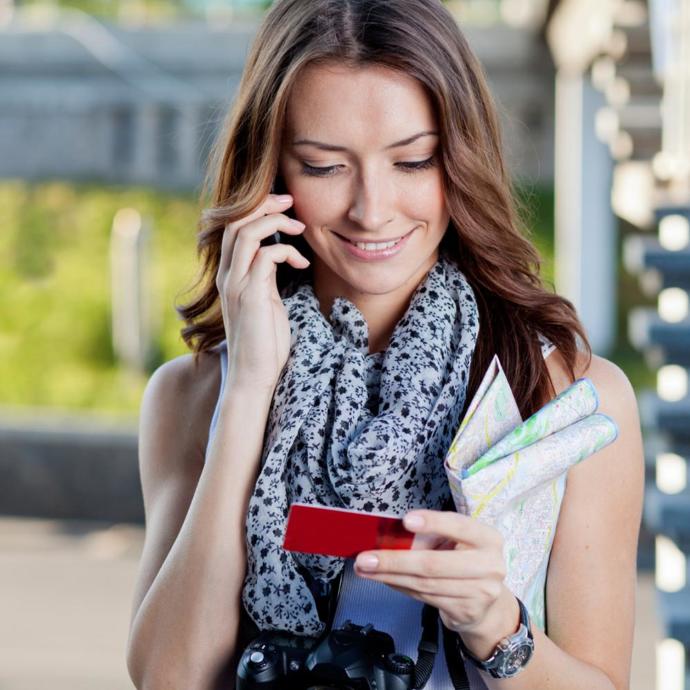Hopefully sometime in your life, you will have the ability to travel whether that be locally or internationally. Sometimes you will be going to places where the laws are different, security is different, you may not know the language, and if something happens, it may be difficult to find help or justice. Add to that, we live in a world now where, cyber and credit card theft happen every second of the day, so there is an added layer of things to worry about that could potentially cause a lot of headache in our lives.
1. Start at the beginning

It is unwise to travel without letting someone know where you're going, who you're going with, flight or other transportation details, your hotel info, and when they should expect you back. So many things could happen to you along the way or in your travel destination and if someone back home doesn't have the slightest idea where you are or where you should be or be back, how could they even begin to help you if you're in trouble. Email/print this info out and leave it with at least one trusted member of your family or friends circle.
Also assume the worst, if everything you own is stolen, what would someone back home need to help you---numbers to cancel your credit cards, how to wire you money, a copy of your passport, etc. Make sure as your backup for emergencies, they have all that.
2. Leave it off Facebook
Facebook and your phone love to track your whereabouts. Turn those trackers off because they serve as beacons to let thieves and criminals know exactly where you are, or in the case of your home, aren't so they can rob you or hurt you.
3. Scan a copy of your passport
Before you leave, scan a copy of your passport. Make sure to e-mail it to yourself and take a photo of it to save on your cell phone. If you happen to need your passport while you're out or something, you will have all your details. In the event that it's stolen, getting a replacement will be a bit easier seeing as you can more easily prove your identity.
4. Never leave bags unattended
This is especially important if you're traveling by train or bus where you may leave to go for a quick snack run or to the bathroom. In that time, someone may just take your stuff, get off the bus, and leave and you will never see your stuff again. Thieves wait at terminals and just watch for people who leave their bags so they can grab them. In bathroom stalls even, sometimes, a thief will reach under the stall if the bag is on the floor and just snatch it.
5. Wear a travelers/running belt/Go incognito

A runners belt is a great way to protect your credit cards, petty cash, small jewelry like a wedding ring, phone, etc. They strap tightly around the waist and can be easily hidden under a long shirt. They also make ones that strap to a leg or an arm or even a bra, that can also be hidden away under clothing. When you are walking the city or traveling through more sketchy neighborhoods, criminals are looking for big purses and big expensive bags and jewelry and phones they can get. Men and women alike need to avoid putting their cell phones in their back pocket because it makes it incredibly easy for thieves to steal. If you don't look like you have anything, why would they bother with you.

Also if you have big ticket items like ipads and DSLR cameras, don't pack them in a typical camera bag or case that can be easily identified from a distance. Put the items in inconspicuous bags that don't have brand name labels on them.
6. Use the peep hole
We don't think that someone getting off an elevator would ever follow us to our room, but it can happen. If someone you don't know gets off with you, let them go first or pretend to look through something at the elevator, so they will be forced to go ahead. Look behind you as you approach your room and if for any reason you feel someone is following you, keep walking or come back with a family/friend.
7. Don't flash your cash
Wearing all your rings, your expensive watch, pulling out wads of money....all put a target on you. When traveling, especially if you don't know the area, this is never a good idea.
8. Get in STEP

Go to the State Department's Smart Traveler Enrollment Program (STEP) page, where you can register your travel plans. In the event of an emergency (whether it's a natural disaster, an emergency back home, or civil unrest), they will be able to contact you.
9. Do not feed the animals
In Australia, the legend goes, that they have all the worlds most dangerous animals. Whether there or anywhere else, now is not the time whilst traveling to find out if that or anything else is true by trying to pet ,feed, hold, catch, or trap animals, even domesticated ones. You never know what types of illnesses they have or their temperament.
10. Know your local 9-11
Every country is different. 9-1-1 may not be the emergency number abroad. Before you even set foot in another country, store important emergency numbers in your phone as well as the address of the nearest hospital to where you are staying or traveling.
11. Notify your bank
Let them know that you are traveling either out of state or out of the country. They can help you track any fraudulent charges. This worked so well for me that the one time I didn't do it, they temporarily shut down my cards on an out of state trip b/c they thought I had been robbed. It was annoying and hilarious, but hey, if it hadn't been me, this is what you pay them for right.
12. Dress like a local

You do not want to look like a tourist in a foreign country. To some, this makes you an easy mark or target. As much as you may love the clothes you brought from home, adapt a bit to the local dress so you don't stick out.
13. Avoid local protests and marches outside your own country
Laws, people, protestors are different round the world. You know even here, protests can get violent quickly and so can the response. You do not want to get involved in something you know nothing about just because you want to be a spectator because it could potentially end in your death or arrest abroad if things go south.
14. Know where to run
Speaking of violence, it can errupt suddenly in certain places, or fire may happen, or other emergency situations. Know your escape routes. When entering a new place or area, scan it to see where the exits are or know your hotels escape routes.
15. Avoid distractions and "helping those in need"
I hate to say this, but there are criminals who have figured out that the easiest way to rob someone is to prey on their kindness. They put up a sign and ask you to read it while someone robs you blind, children surround you begging for money and pick pocket, you pull out your phone to let someone call or a wallet to give change, and they snatch it and go. Be very careful, watch your surroundings, and if you feel like your spider sense is tingling, listen to it and get out of there.
What Girls & Guys Said
Opinion
2Opinion
Good advice - plus familiarise yourself with the local money. One scam in some countries is to cheat tourists by giving them demonetised notes or notes from third countries when they change money.
16. Don't get so shitfaced or stoned that you lose control of your situation.
Would have added get your jabs.
Also would say this is very negative! Seems to make out like you're just going to get robbed and have a shitty time. I never dress like a local and I do fine.